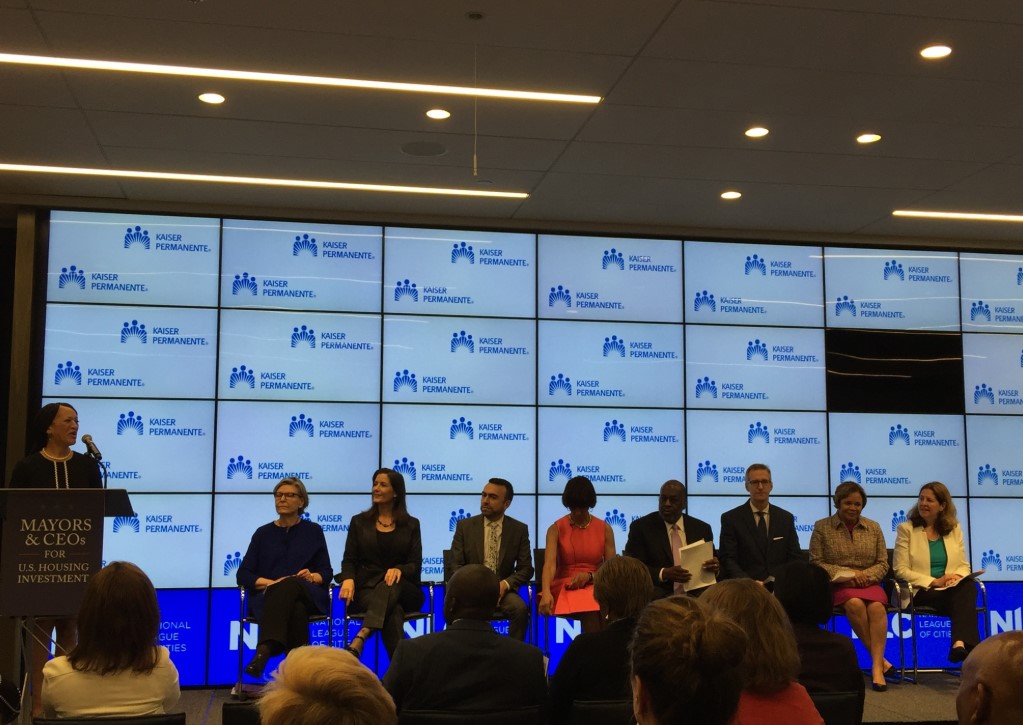 Health and Human Services recently released enhancements to its existing National Standards for Culturally and Linguistically Appropriate Services with the goal of further improving the quality of care provided to the United States’ diverse population. According to the press release, this update is a real milestone in the implementation of the HHS Action Plan to Reduce Racial and Ethnic Disparities.
Health and Human Services recently released enhancements to its existing National Standards for Culturally and Linguistically Appropriate Services with the goal of further improving the quality of care provided to the United States’ diverse population. According to the press release, this update is a real milestone in the implementation of the HHS Action Plan to Reduce Racial and Ethnic Disparities.
For insight into this announcement, we interviewed Gayle Tang, MSN, RN, senior director of National Diversity & Inclusion for Kaiser Permanente. Tang is a member of the National Project Advisory Committee that provides input and counsel on the CLAS enhancement initiative, and here she shares her first-hand knowledge of the standards, why they are so vital, what key changes are part of this project.
CTH Blog:
For those unfamiliar with the national standards for Culturally and Linguistically Appropriate Services (otherwise known as CLAS), can you give us a brief overview?
Gayle Tang:
The National Standards for Culturally and Linguistically Appropriate Services (CLAS) were developed in response to the need to ensure that all people entering the health care system receive equitable and effective treatment in a culturally and linguistically appropriate manner. The original CLAS Standards were released on December 22, 2000, with legal backing by the Civil Rights Act of 1964, and several years of rigorous research, community deliberations, and public comments.
The original CLAS standards have served as a means to promote the elimination of racial and ethnic health disparities and to improve the health of all within the United States. They are vital to ensuring patient safe care, avoid unnecessary testing/invasive procedures, eliminate inefficiencies, ensure timeliness and effectiveness, and promote affordable care.
Over the years, the CLAS Standards have become increasingly prominent and fundamental to the development of culturally and linguistically competent systems, programs and services, and multicultural distinction. They have been integrated into accreditation, quality assurance, and contract compliance requirements and audits, thereby impacting how organizations address health equity, quality and patient-centered care.
CTH Blog:
Thanks for that background. So tell us about the enhanced standards recently announced.
Tang:
To provide a bit of historical context, in September 2010, the U.S. Department of Health and Human Services, Office of Minority Health recognized the evolution in the field and practice of cultural and linguistic competency since the initial dissemination of the Standards and launched the National Standards for CLAS in Health and Health Care Enhancement Initiative.
This Enhancement Initiative was intended to refresh the original standards with information that included input from the public and feedback from a National Project Advisory Committee (NPAC) composed of leaders and experts in the field of linguistic and cultural competency. I am a member of the NPAC, which will continue to function as the advisory body. In this capacity, I will be involved in the continued enhancements over time, in recognition of a dynamic landscape.
While there were originally 14 CLAS standards, there are now 15. One of the key enhancements is an expanded, broader definition of culture. Efforts were also made to ensure alignment with the Affordable Care Act, and the enhanced CLAS Standards provide good direction for the development of health exchanges that will reach culturally and linguistically diverse communities.
CTH Blog:
You oversee, monitor, and enhance organizational performance for CLAS implementation at Kaiser Permanente. How has your organization embraced the standards?
Tang:
Kaiser Permanente was an early adopter of the full set of 14 CLAS Standards and embraced them as being integral to the delivery of high quality care for all of our members. Sponsorship at the most senior leadership levels in the organization coupled with strategic, technical, and programmatic support led by National Linguistic & Cultural Programs, a specialized functional area of National Diversity & Inclusion, contributed to a successful CLAS roll out in 2001. Since then, we have established a strong CLAS infrastructure throughout our Kaiser Permanente regions, and advanced innovative initiatives and programs that support CLAS, such as the Qualified Bilingual Staff Model and Program, Member Demographic Data Collection (MDDC) Initiative, and Language Concordance Programs, to name a few.
CTH Blog:
What can people do if they feel these standards are not being met by a health care organization?
Tang:
There are different avenues for patients to express concerns if they feel that they are not receiving care that is culturally and linguistically appropriate. At Kaiser Permanente, we have internal mechanisms. In addition, the U.S. Department of Health and Human Services, Office for Civil Rights (OCR) is a venue for bringing forth formal complaints related to discrimination on the basis of race, national origin, disability, or age. A complaint will trigger an OCR investigation.
For more information on the CLAS standards, visit the U.S. Department of Health & Human Services Office of Minority Health website.




